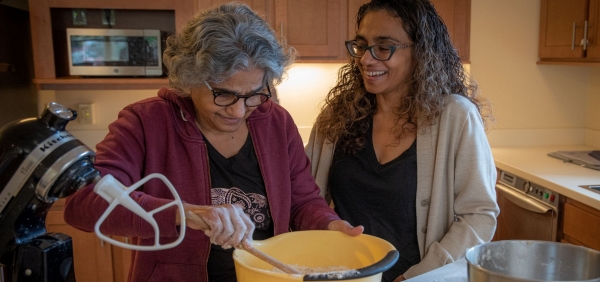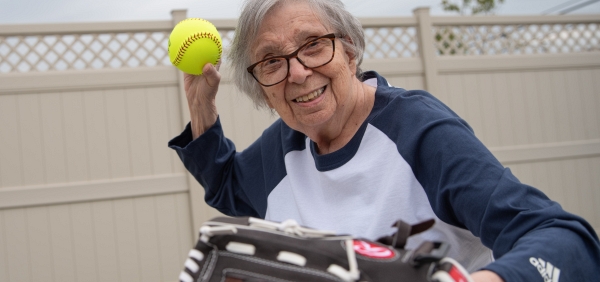What Are Signs a Loved One Needs Memory Care?

It’s not unusual to forget someone’s name or an anniversary or birthday. And we’ve all misplaced our keys or forgotten why we walked into a room. So how do you know when memory loss is more serious and a sign your loved one needs Memory Care? It’s a question few people want to answer, and it’s often easier to think your family member’s memory issues aren’t a real problem yet.
In 2023, an estimated 6.7 million Americans aged 65 and older (10.8% of older adults) are living with Alzheimer’s disease or another form of dementia and 73% of those are 75 or older. In fact, the percentage of people with dementia increases with age: 5.0% of people age 65 to 74, 13.1% of people age 75 to 84, and 33.3% of people age 85 and older.
But people younger than 65 can also develop dementia. Researchers believe about 110 of every 100,000 people ages 30-64 years — or about 200,000 Americans in total — have younger-onset dementia.
Multiple studies have shown that moving someone with Alzheimer’s disease or other forms of dementia into Memory Care communities sooner, rather than later, can result in a better quality of life with improved mental, physical and emotional outcomes. (You can learn more about Memory Care here.)
Does Your Loved One Need Memory Care?
While your loved one may want to live at home for as long as possible, memory loss can create more issues than occasionally misplacing an item. Here are seven signs your family member may need full-time care.
- Behavior changes: A person living with memory loss might become more anxious or easily irritated.
- Changes in their living environment: Notice if your loved one leaves spoiled food in the fridge, trash is piling up or if they stop remembering to pay their bills.
- Unsafe at home: Many people with Alzheimer’s often experience falls and broken bones due to problems with balance. They can also have trouble recognizing when something is an emergency and even forget how to call 911. If they leave the house, they may get confused and have trouble remembering how to get home. This can be especially dangerous if they live somewhere with extreme cold, heat or near a busy road.
- Disorientation and confusion: A fragile mental state can lead to accidents and other unsafe situations. Memory loss can cause your mom or dad to forget to do important tasks like turn off the stove, change clothes or how to drive,
- Diminishing social life:
If your family member used to be highly social but is now limiting their social activities, it could be because they’re afraid of forgetting people’s names or not being able to follow the conversation. - Feeling burned out:If you’re the primary caregiver for your parents, being overwhelmed can be hard to recognize. But your well-being is important, too, and it’s hard to care for another without caring for yourself. If you find it difficult to get out of bed in the morning, you’re in danger of losing your job because you’re late or leaving early or neglecting your own relationships, it might be time to consider a Memory Care community for your loved one.
- You have a feeling: Even if you don’t see all of the signs above, you may still have a sense something’s wrong. If you notice your family member starting to change, it’s best to start exploring your options as soon as possible. That way, you’re prepared if the time for a change is needed.
Your Partner in Memory Care and Assisted Living
At Artis Senior Living, our approach to Memory Care and Assisted Living helps residents live a more fulfilling life. While it’s understandable you may want to keep your loved one at home because it’s more familiar to them, dementia and Alzheimer’s are progressive diseases that require a specific care program with special training. That’s why our approach is built around relationships and positive partnerships. To learn more, find an Artis location near you.



